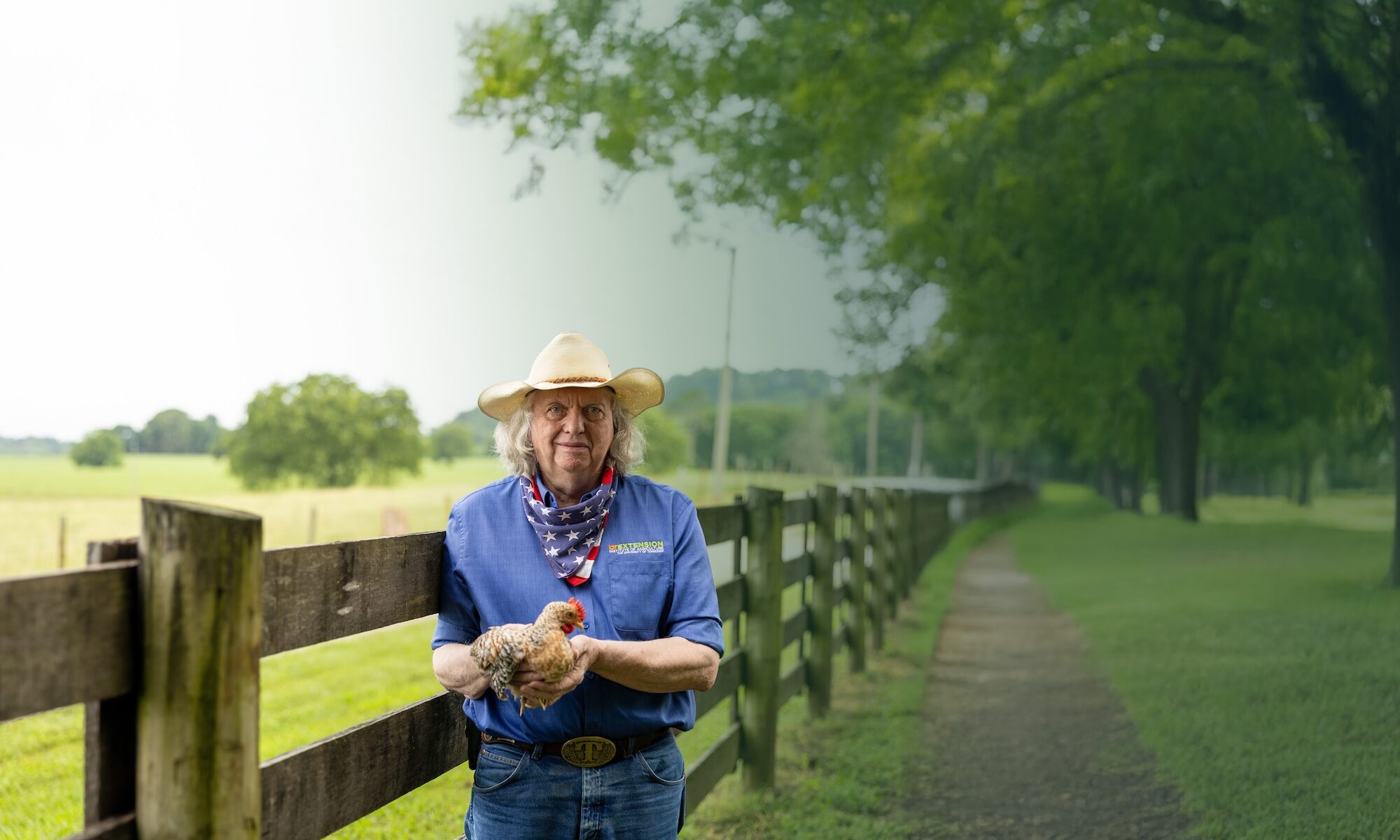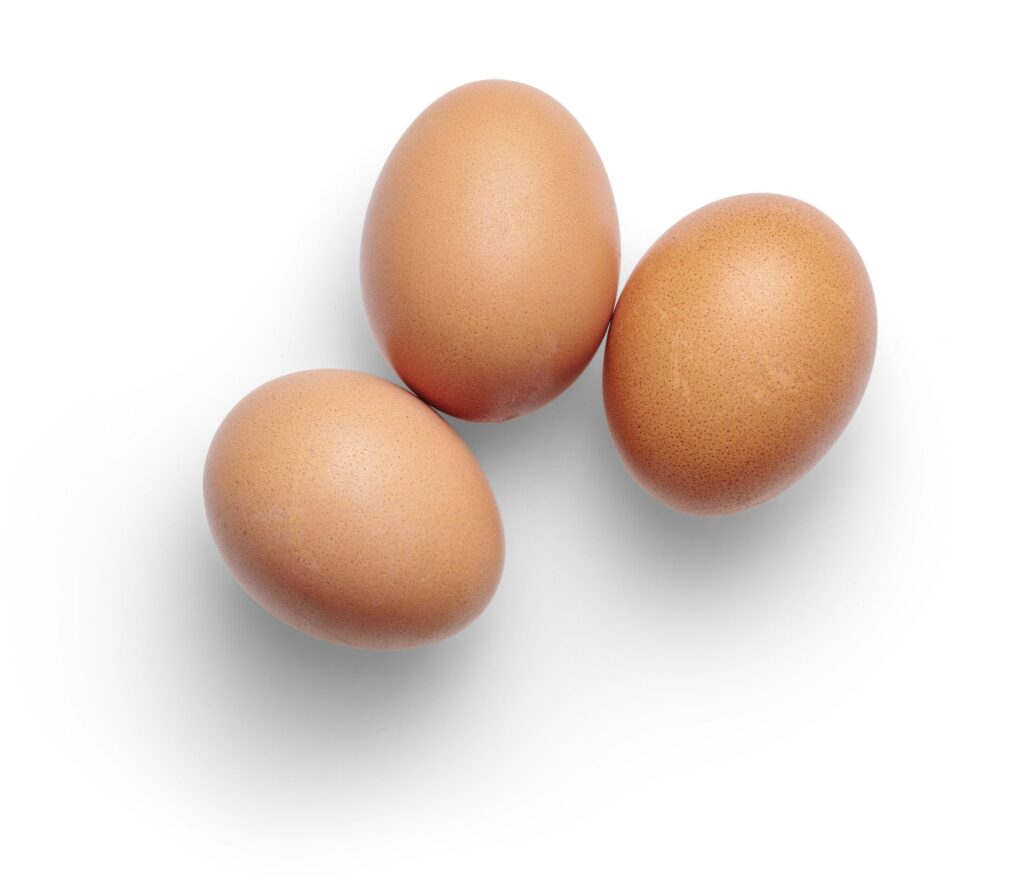
Extension specialist promotes safe practices for commercial operations and backyard flocks
Tom Tabler knows what it’s like to lose the farm.
Preventing the spread of highly pathogenic avian influenza has been the biggest area of focus for the animal science professor and UT Extension poultry specialist since the latest outbreak began in February 2022.
Without a vaccine, cure, or treatment for avian influenza, commercial producers and backyard owners must rely on biosecurity, and Tabler is one of its foremost promoters. His audience ranges from large-scale poultry producers to 4-H students raising chicks for the first time. “Biosecurity is the only tool in the toolbox,” Tabler says. His mantra is isolation, traffic control, and sanitation.
Tabler has seen firsthand the devastation caused by the virus. He and Shawn Hawkins, Extension engineer and professor of biosystems engineering and soil science, are trained and certified as subject matter experts by the US Department of Agriculture and deployed to help producers safely compost carcasses of chickens culled when avian influenza is detected.
“It’s a stressful time for the people who have lost the birds, and it’s heartbreaking.”
-Tom Tabler
Tabler came to UTIA in January 2022 from Mississippi State University, where he was one of two Extension poultry experts and professor for ten years. Prior to that, he served in a similar role for the University of Arkansas for twenty-one years.
While he grew up on a small beef cattle farm in Arkansas, Tabler has made a career in poultry production. After college, he worked for a broiler integrator and met his wife, Missy, who worked for a rival broiler integrator. Her grandfather had a farm with four chicken houses, 200 head of cattle, and a 480-sow farrowing operation, which Tabler managed for five years. When the grandfather died, his daughters sold the farm. “That just about broke my heart because I loved that farm and miss it still today,” Tabler says.
In 1990, he began his career at the University of Arkansas, managing a new commercial-scale broiler research facility. His time there overlapped with current UT AgResearch Dean Hongwei Xin, then a postdoctoral research associate conducting broiler housing research.
“We saw each other just about every day while he was there,” Tabler says. Xin left in 1993 for Iowa State University, where he moved through the faculty ranks and served in various leadership roles. Xin’s research and innovation in housing systems, environmental control, and air quality to improve animal welfare and production efficiency made him an internationally renowned expert in the field. “Tom taught me everything I know about broiler production and some cool Southern expressions,” says Xin. “Hongwei is the main reason I’m now in Tennessee,” Tabler adds.
While in Arkansas, Tabler earned his master’s and doctoral degrees and helped raise a family. He regrets he missed Future Farmers of America and 4-H activities with his children, but now his work involves outreach to the next generation. Each spring, he teaches 4-H students how to safely start their chick chain projects.
While biosecurity is better known to large producers, backyard owners are less familiar with the practice, Tabler says. Biosecurity is achieved by isolating chickens from wild or migratory birds and pathogens humans may inadvertently spread, controlling and limiting the number of people with access to the birds, and cleaning and disinfecting everything, including people, materials, and equipment.
“If you go to town, it’s very easy to pick something up and track it back home,” Tabler says. “If you leave the farm and come back, change clothes, change boots, and take a shower.”
Avian influenza is not the only danger. “Part of my salmonella spiel is don’t kiss and snuggle on your backyard chickens,” Tabler says. “Tennessee state veterinarian Samantha Beaty wants chick chain participants and their parents to understand this fact, and I work closely with Dr. Beaty and the Tennessee Department of Agriculture to get this point across during biosecurity trainings.”
Extension agents appreciate the sincere way he addresses his audience. “Tom is knowledgeable, passionate, and clear in his communication about poultry in general but especially on biosecurity,” says Doug Berny, a 4-H agent in Williamson County who has attended Tabler’s in-service trainings for agents.
Tabler will soon be responsible for a next-generation poultry facility at the Middle Tennessee AgResearch and Education Center at Spring Hill, Tennessee, where he is based. Last year, UTIA broke ground on the facility that will include four commercial-size broiler production houses to grow chickens for the Tyson Foods complex in Shelbyville, Tennessee. “Tom has been intimately engaged in the planning of this state-of-the-art facility that will prove transformative to UTIA’s Real. Life. Solutions. research and education endeavors to serve the broiler producers in Tennessee and beyond,” Xin says.
Tabler is eager for the facility to be up and running, and you can bet biosecurity will be foremost in his mind.

Explore More on
Features
MORE FROM THIS ISSUE

















